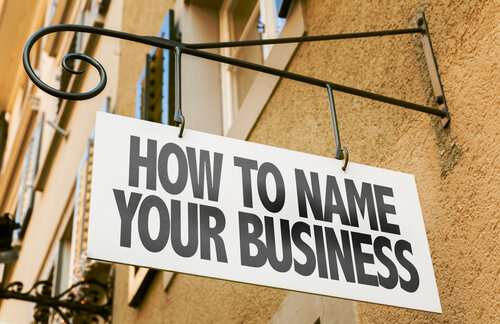Finding the right name for your business or product is one of the most important decisions that you would have to make as a business owner. Your business name is also an important factor in your brand valuation and top-of-mind positioning for your target audience. Here are 7 strategies used by top brands to name their business/product.
- Eponymous (Named after Founder)
An eponym is a person, place, or thing after whom or which someone or something is, or is believed to be, named. Eponymous branding is common in the fashion and entertainment industry.
Examples: Steve Madden, Tommy Hilfiger, Louis Vuitton, Ralph Lauren, Coco Chanel, Adi Dassler (Adidas ), Ford Motor Company, Walt Disney Company, Henri Nestlé (Nestlé)
- Combining Founder’s Name
Some business names are generated by combining the names of the co-founders of the business. It is a common naming style in advertising agencies, law firms, and architecture businesses.
Example: Hewlett Packard (Bill Hewlett and David Packard), Kimberly-Clark (John A. Kimberly and Charles B. Clark), Mattel (Harold Matson(AKA Matt) and Elliot Handler (El ), Marks & Spencer (Michael Marks and Thomas Spencer), Henry S. Morgan and Harold Stanley (Morgan Stanley).
- Acronymic
An acronym is an abbreviation of a word that has been composed of the initial letters or components of a phrase or word.
Examples: Black Entertainment Television (BET), International Business Machine (IBM), American Telephone and Telegraph Company (AT&T), Entertainment and Sports Programming Network (ESPN), United Parcel Service (UPS), Yet Another Hierarchical Officious Oracle (YAHOO). Banco Bilbao Vizcaya Argentaria (BBVA),
- Descriptive
A descriptive name describes what the business does or the product is about.
Examples: The Body Shop, American Airline, Whole Foods,
- Suggestive
A suggestive name describes what the business aims to do or what the brand is synonymous with.
Examples: Shopify (Online Shopping), Pinterest (Pin your interest), Intel (Integrated Electronics -Intelligence), Reddit (
- Associative
An associative name describes the feelings and traits that a business wants to be associated with.
Examples: Amazon (Worlds longest river), Google from Googol (an unfathomable number), Accenture (Accent on the future), QualComm (Quality Communication), Greyhound (Fast Dog), Cisco (Last five words from San Francisco)
\
- Language Root
By digging into the various meaning of your brand essence in various languages, you could find a great name.
Examples: Nike (Greek goddess of victory), Reebok (Afrikaans for the great rhebok (type of African antelope), leg godt (Danish for Play Well), Pixar (faux-Spanish word meaning “to make pictures”)
- Abstract
Abstract names have no obvious meaning, they are usually made up but have phonetic qualities.
Examples: eBay (Echo Bay), Kodak (Invented by George Eastman), Xerox (from Xerography), Verizon (Latin Veritas (truth) + Horizon).
- Noun based names
A noun is a world that describes a place, animal, place or thing. Some of the most iconic brands of our time have leveraged the simplicity of nouns to name their brands and products. The naming strategy is commonly used by community-based businesses and sporting brands names after the location.
Examples: Apple (Apple fruit), Blackberry (Fruit), Cisco (The last 5 words from San Francisco.
Finding the right name for your business and product requires paying attention to details and staying curious. A name might be lurking around the corner, stay open-minded and you could get the inspiration from the list above.
Need help naming your business? You can join our 12-week program for Black tech founders by Black industry experts.
